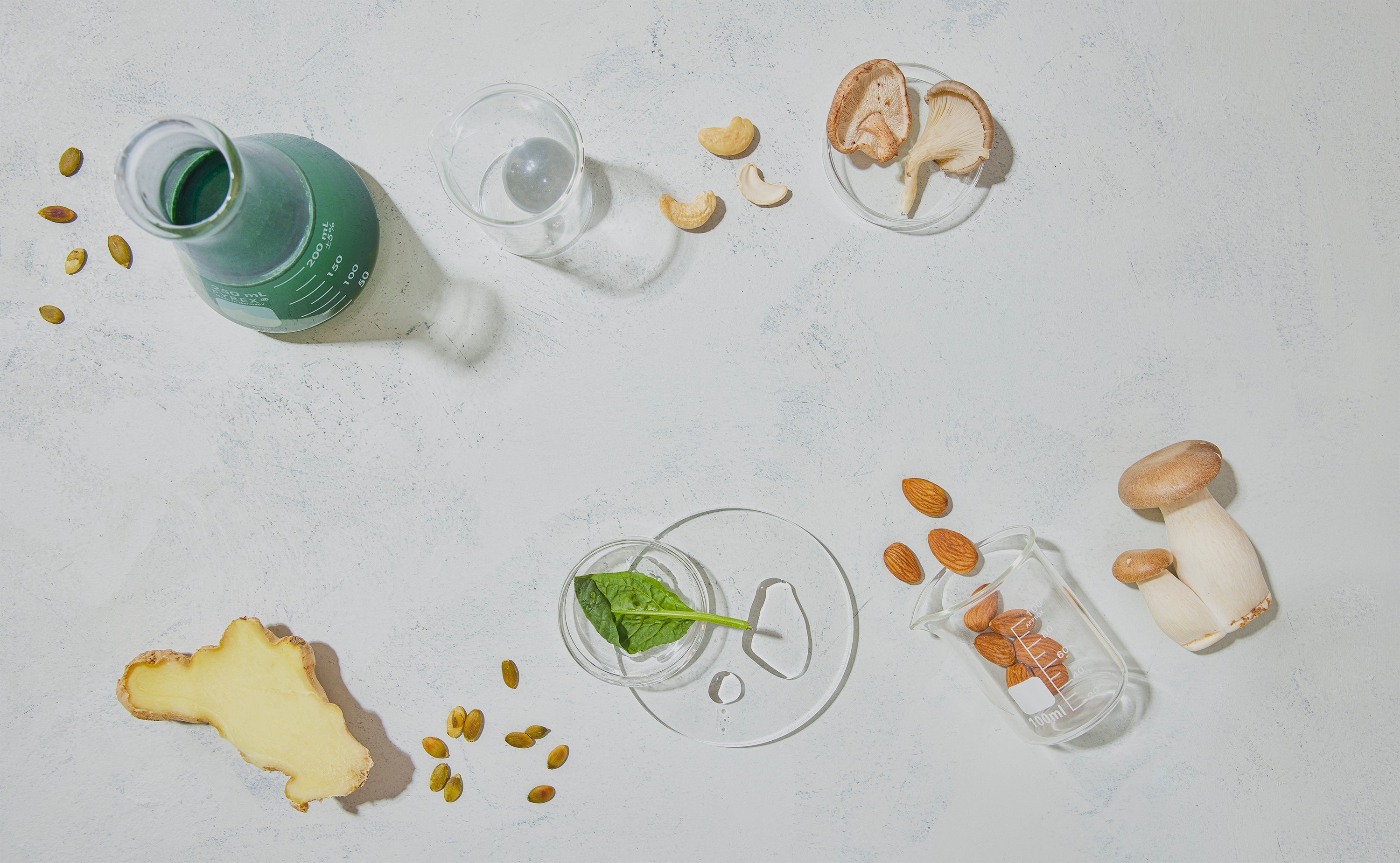Tired of hearing “just take any prenatal vitamin”? With endless ads for pills, gummies, and powders, how do you actually know what’s actually best?
Pregnancy isn’t a guessing game, and your body deserves more. Let’s talk about what really works: the power of real foods.
1. Real Food Nutrients > Synthetic Nutrients
99% of prenatal vitamins on the market are packed with synthetic nutrients, which are chemically created to mimic what’s found in food. But here’s the thing: your body absorbs real food nutrients better.
When you eat a whole food, you’re not just getting an isolated vitamin—you’re consuming a complex mix of cofactors that help your body actually use that vitamin. Synthetic nutrients, on the other hand, always lack these cofactors, making them harder to absorb and utilize.
Take Folate, for example—an essential nutrient for preventing neural tube defects and supporting your baby’s development. A study by Bailey et al. (2009) found that natural sources of folate, like leafy greens and legumes, were more effective at improving folate status compared to synthetic forms found in supplements. Real foods are what our bodies crave!
So when looking at a prenatal, ask: Are these nutrients from real food? If the label doesn’t say “made from real food nutrients,” there’s a good chance it’s synthetic. And, don’t be fooled by bottles that have pictures of fruits and vegetables and say “plus food” on them – often, these prenatals include a pinch of “food blend” powders but the nutrients themselves are still synthetic.
2. Don’t Overlook Macronutrients
Prenatals are often laser-focused on micronutrients like iron, folate, and calcium—and for good reason. These small-but-mighty nutrients are critical for your baby’s growth and your well-being. But what about macronutrients?
Macronutrients—like carbohydrates, protein, and healthy fats—are just as essential during pregnancy and are required at higher levels during pregnancy too! They provide the energy you need to stay strong while supporting your baby’s development. Macronutrients also boost the absorption of micronutrients. For example, prebiotic fiber (the specific type that Tend includes) enhances mineral absorption (such as calcium and magnesium) by over 60%! However, most traditional prenatal vitamins miss out on macronutrients altogether.
Tend is not only made entirely from real foods, it’s the first prenatal that offers a balance of both micronutrients and macronutrients. It’s not just a vitamin—it’s whole food nutrition that fuels your body.
3. Gentle on Nausea (Goodbye, Gag Reflex)
Let’s be honest: swallowing pills during pregnancy can feel like a daunting, nausea-inducing task, especially if you’re battling morning sickness. Gummies might seem like an easy alternative, but they often contain synthetic nutrients and unnecessary sugars. Gummies also cannot pack in enough nutrients like iron and Omega-3 DHA.
A snackable prenatal vitamin can change the game. Instead of choking down pills, you can enjoy something that nourishes you and tastes good—without sacrificing the nutrients you and your baby need. If you’re struggling with pregnancy nausea, check out these tips.
4. Watch Out for Fillers and Additives
Many prenatal vitamins are filled with artificial colors, flavors, and other unnecessary ingredients. Some are even coated in additives to make them shelf-stable or easier to swallow. None of these are doing your body or baby any favors.
Watch out for ingredients like resin, carnauba wax, hypromellose, silicon dioxide, and natural flavors. When choosing a prenatal, stick to clean, simple ingredients. If a label reads more like a chemistry experiment than a food, that’s a red flag.
5. Top 6 Micronutrients to Look For (and Getting the Right Dosages)
To give your baby the best start, focus on these essential micronutrients. Remember, a prenatal vitamin is meant to supplement your diet and fill in nutritional gaps, not provide dosages that far exceed the recommendations. We’ve included the recommended daily dosages outlined by the American College of Obstetricians and Gynecologists (ACOG) and encourage you to get the majority of these nutrients from real, whole foods. Too much of certain nutrients (especially in synthetic pills and gummies) can be unnecessary or even harmful.
-
Folate (600 mcg) Folate (aka B9) supports neural tube development and prevents birth defects. ACOG recommends 600 mcg per day. Unlike synthetic folic acid, real-food folate is better absorbed and utilized. A 2019 study in Nutrients highlights that folate from whole food sources improves maternal and fetal outcomes compared to synthetic folic acid.
-
Iron (27 mg) Iron helps prevent anemia and supports your growing baby’s blood supply. ACOG recommends 27 mg daily. Look for real food sources of iron like spinach or beef liver, which are gentler on the stomach.
-
Choline (450 mg) Essential for your baby’s brain and spinal cord development, choline is often underrepresented in prenatal vitamins. ACOG recommends 450 mg per day during pregnancy. Research from the Journal of the American Medical Association links adequate choline intake to improved cognitive outcomes in infants. Recent research also suggests that synthetic choline (ie. choline bitartrate and choline chloride) could have harmful side effects, so opt for choline from foods.
-
Calcium (1,000 mg) Calcium supports your baby’s bone development and protects your bone health. ACOG recommends 1,000 mg daily, ideally from food-based sources like sesame seeds or dairy.
-
Vitamin D (600 IU minimum) Vitamin D works with calcium to strengthen bones and support immune function. ACOG recommends 600 IU per day. Look for natural sources like egg yolks or fatty fish. A 2020 review in Frontiers in Endocrinology shows vitamin D deficiency during pregnancy increases the risk of preterm birth.
-
Omega-3 Fatty Acids (DHA: 200-300 mg) Omega-3s, particularly DHA, are critical for your baby’s brain and eye development. ACOG recommends 300 mg per day from natural sources like fish or algae.
The Bottom Line: Look for Holistic Nutrition
Pregnancy isn’t just about checking off a list of nutrients. It’s about nourishing your body in a way that supports you and your baby throughout the journey. A prenatal vitamin made entirely from real food—like Tend—provides nutrients in their most natural, bioavailable form and includes the macronutrients you need for energy and balance.
Because when it comes to growing a healthy baby, nature knows best.
Tend is the world’s first prenatal vitamin made entirely from real foods. No synthetic nutrients. No fillers. Just clean, snackable nutrition that your body can absorb and use.



